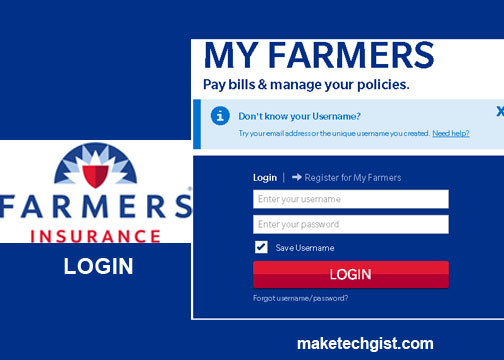You cannot take a life insurance policy on anyone’s behalf. To buy insurance that covers someone other than yourself, you will need to fulfill two legal requirements. If either of these requirements isn’t sufficient, the insurance company won’t approve the policy.

The first is that you need to have an insurable interest in the individual. This indicates that you have a monetary stake in the person’s continued existence. One situation would be that you rely on them to complete tasks for you that would be challenging to replace.
Moreover, the cost would be higher than what you currently pay, if you pay anything at all. Additionally, you may choose to insure a financial dependent of yours, such as a cosigner on a loan. Secondly, the individual in issue needs to agree to the policy. Furthermore, they have to approve your request to obtain the policy.
Who Can You Buy a Life Insurance Policy For
Purchasing a life insurance policy for someone else may make sense in some circumstances. These are typical situations where the individual you wish to insure would be one of your insured interests.
Business Partner
Business partners frequently have a buy-sell agreement that outlines what will happen to the company if one of them passes away. However, if one of the partners passes away, life insurance frequently funds the buy-sell agreement.
To get reimbursement of a death benefit in the event of one partner’s passing, each partner purchases a life insurance policy on the other. Furthermore, policyholders can use the payout to purchase the late partner’s ownership stake in the company from the surviving spouse, kids, or other relatives.
Employee insurance
If you are a business owner, you have the option of purchasing employee insurance to protect a worker who makes a substantial contribution to the company. However, there would be a significant impact on company revenues if a top performer in sales were to pass away. Moreover, a key person policy will assist business owners in covering business liabilities while they search for a replacement for the position. The Insurance Information Institute states that typically, the business purchases the policy pays the premiums, and is the beneficiary. Furthermore, the employee must go through the underwriting process and should purchase a permit for a policy on their behalf.
Your kid
If you are a child’s parent, grandparent, or legal guardian, you can purchase life insurance for them and designate yourself as the beneficiary. Additionally, you probably don’t depend on your child for financial support, so the objective isn’t to give yourself a safety net. However, purchasing life insurance for a child ensures that the child will remain eligible for coverage when they experience a health issue in the future.
Your Parents
As parents age, it’s not uncommon for children to purchase life insurance on them. Moreover, purchasing life insurance for your parent can assist you in covering their funeral and other final expenses, as well as any outstanding debts they may leave behind.
Your previous spouse
You may purchase a life insurance policy on your ex-spouse if you are no longer together and they are paying spousal or child support. That way, if they die, you would still receive compensation.
Your sibling
As long as you are old enough to get insurance and there would be some financial loss if your siblings passed away, you can get insurance for them. For instance, if you two started a business or purchased a house together. Just because you’re related doesn’t mean that you should insure your sibling.
Your spouse
Spouses may purchase a life insurance policy on one another for a few different reasons. If one spouse is the provider and the other does not have any income of their own, then it would be right to purchase insurance. Moreover, if the primary earner is funding the policy, it is possible that they would also like to be the policyholder.
However, if your spouse doesn’t receive any information and doesn’t participate in the life insurance policy you take out on them. As the insured, your spouse must sign the policy and go through the underwriting procedure.
How to Take a Life Insurance Policy Out On Anyone
There are a few standard procedures you must follow to take out life insurance for anyone, even though the underwriting procedures used by insurance companies vary.
Choose the kind of life insurance
Whether temporary or permanent coverage is required is the initial choice to be made. Term life insurance is a short-term solution that lasts for a set amount of time. This includes 10, 20, or 30 years, and is typically less expensive than permanent life insurance.
Permanent life insurance policies, such as whole life and universal life, accrue cash value that can be accessed for borrowing or withdrawal. Furthermore, they remain in force as long as the premiums are paid.
Get quotes
Finding the best price and terms is important, so compare quotes from a few different life insurance providers regardless of the type of coverage. Furthermore, it is wise to get quotes from several carriers for the same coverage because the cost may differ.
Get Consent
Obtaining consent from the individual you intend to insure is the next step once it comes time to apply for coverage. Before the policy is approved, they will probably have to sign a consent form and go through a medical examination. Moreover, it may be deemed insurance fraud to insure someone without getting their signed consent, even if you choose a policy that waives the need for a medical exam.
Show that your interest is insurable
If you experience a financial loss upon the death of someone, you have an insurable interest in their death. You cannot buy a life insurance policy on someone if you do not have an insurable interest in them.
Policyholders should periodically review their situation with their financial advisors, spouse, or business partner to determine what adjustments are needed, as personal finances can change rapidly.
Deciding to take out life insurance for anyone is a complicated decision that requires careful consideration of some ethical and legal issues. However, consider the possible advantages and disadvantages of getting life insurance for someone else, as well as the reasons you might want to do so.





